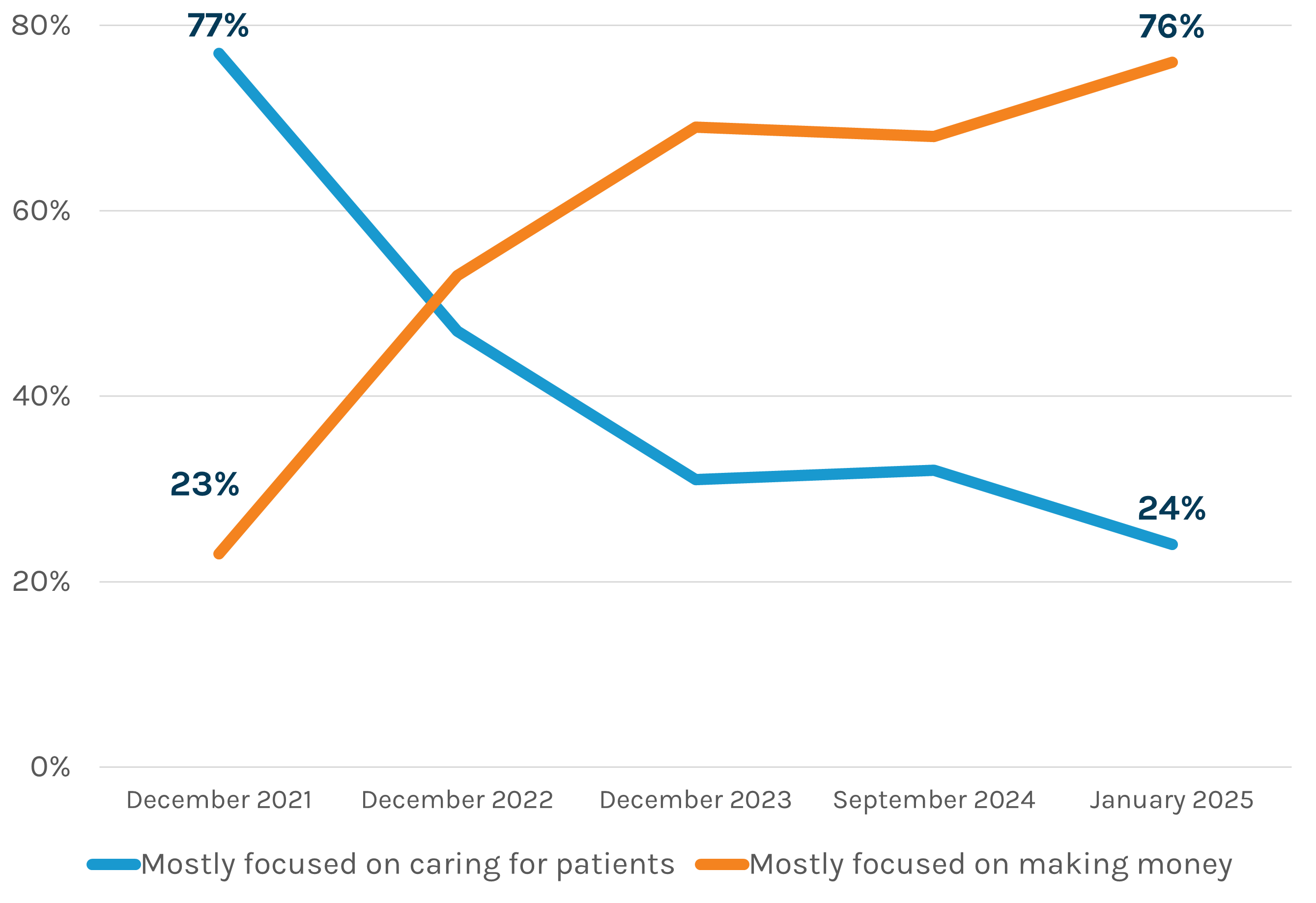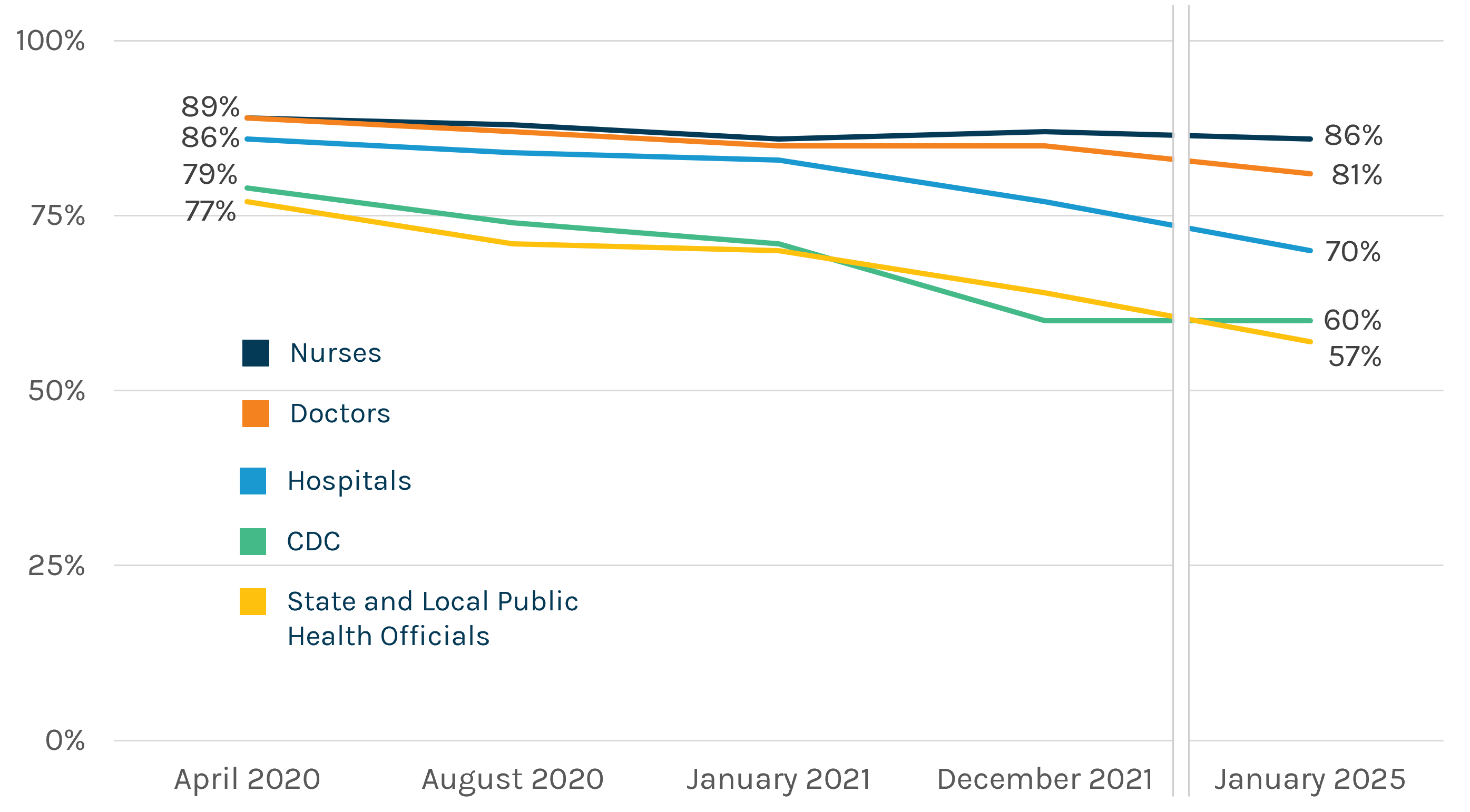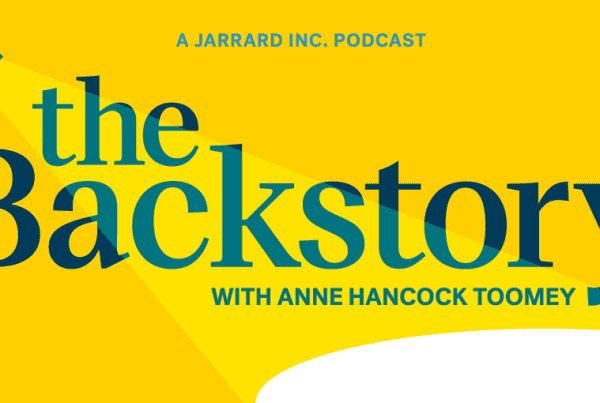The State of Play: Healthcare in 2025
For five years now, we’ve been tracking various questions related to the public’s trust in healthcare. Today, and not surprisingly, the public’s discontent with – and skepticism about – the nation’s healthcare industry is rampant. But there’s good news. All told, our most recent survey indicates that…
Hope is walking your hallways
2-minute read
Who do Americans trust in healthcare today? Doctors and nurses. Period.
Hospitals and health systems? Payers? Less and less every time we ask.
In fact, our latest survey from Jarrard Market Research & Insights finds steady erosion in Americans’ trust that hospitals and payers care more about taking care of patients than making money. For hospitals, the figure is down 50+ points since 2021. And the number of people who believe payers put patients over profits stands at a bare 16 percent.
Whether you agree or disagree with each of the following statements, please select which one you agree with the most.
- Hospitals in the U.S. are mostly focused on making money
- Hospitals in the U.S. are mostly focused on caring for patients

Does it matter, really? Maybe you’ve grown numb to this precipitous decline. We get it.
Yet one glance in the direction of Washington D.C. will show you what can happen when trust in institutions crumbles: Seemingly invulnerable and long-storied organizations held aloft by white marble pillars and traditions can fall, and fast. And indeed, for healthcare, most people say they are now open to an overhaul of the system and welcome increased regulation of it.
Inconceivable, you say? That’s only a movie line.
But there is hope.
Hope is walking around your hallways in white coats and scrubs.
These are the healthcare voices who remain deeply trusted by the public and who could be your most influential advocates just as you need them most.
People trust people. For healthcare leaders, when it comes to our industry, people trust your people most of all. Even while trust in the system of care writ large falters, trust in physicians and nurses – in caregivers – remains resiliently high.
How much do you trust each of the following people, organizations and companies when it comes to providing information about medical and health issues?

As one survey respondent said, “I trust the individuals like nurses and doctors, but I don’t trust the system as a whole.” That pretty well sums up both the high trust in caregivers and the more challenging findings from our survey:
- Anger. Almost a third express frustration or anger towards healthcare in America.
- Profits. Only a quarter of people think hospitals prioritize patients over profits. Payers, too, have experienced a dramatic drop in trust.
- Providers and payers nearing par. Just 4 in 10 are pleased or satisfied with their local hospital or insurance company.
- It’s the cost of care. Cost is top of mind when it comes to healthcare’s shortcomings. Nearly half of respondents have experienced some kind of challenge related to the cost of care.
- Overhaul it. Regulate it. Well over half support significant reform or an overhaul to U.S. healthcare. Support for regulation is also rising.
- Yet, trust remains. Trust in healthcare workers is resilient and resounding.
- Healing hands are the most trusted to mold healthcare policy. Those closest to healthcare, especially doctors and nurses, are most trusted on questions of healthcare policy.
The public’s great frustration with healthcare isn’t new. It’s been in the water for years. But, like the metaphorical frog in the pot, the temperature has been steadily rising for quite some time. Has it reached a boil?
Indeed, maybe it’s the steady public dissatisfaction – and the titanic market and regulatory forces at play – that has made the challenge ignorable at the local level. You might quietly sigh and shrug: After all, what can you do about the weather?
But there is something to do.
Build trust with those voices who are trusted by the public. And use that trust to begin reversing the clear public belief that patient care matters less than money to the institutions that are supposed to care for people and communities.
Work with your clinicians and caregivers. Think of them as your ambassadors. Your potential activists. Identify those who speak with humility, supporting and elevating them.
This, leaders, is a statement to empower you. In critical moments, your voice can recede as others grow. You can move to the back of the stage as others move into the spotlight.
You or your CEO don’t need a bigger megaphone. Instead, it’s about how you activate and amplify a thousand megaphones across your organization and out to the community.
Honor and leverage the trust walking through your hallways, caring for our patients. That’s good politics. That’s good healthcare.
There are additional compelling findings in our latest State of Play survey developed by Jarrard Market Research & Insights, which we formally launched this week. You can get the executive summary here. Ask us for a comprehensive briefing on it. You’ll find it valuable. Trust us.
Contributors: David Shifrin, David Jarrard, Emme Nelson Baxter, Tim Stewart
Image Credit: Shannon Threadgill




